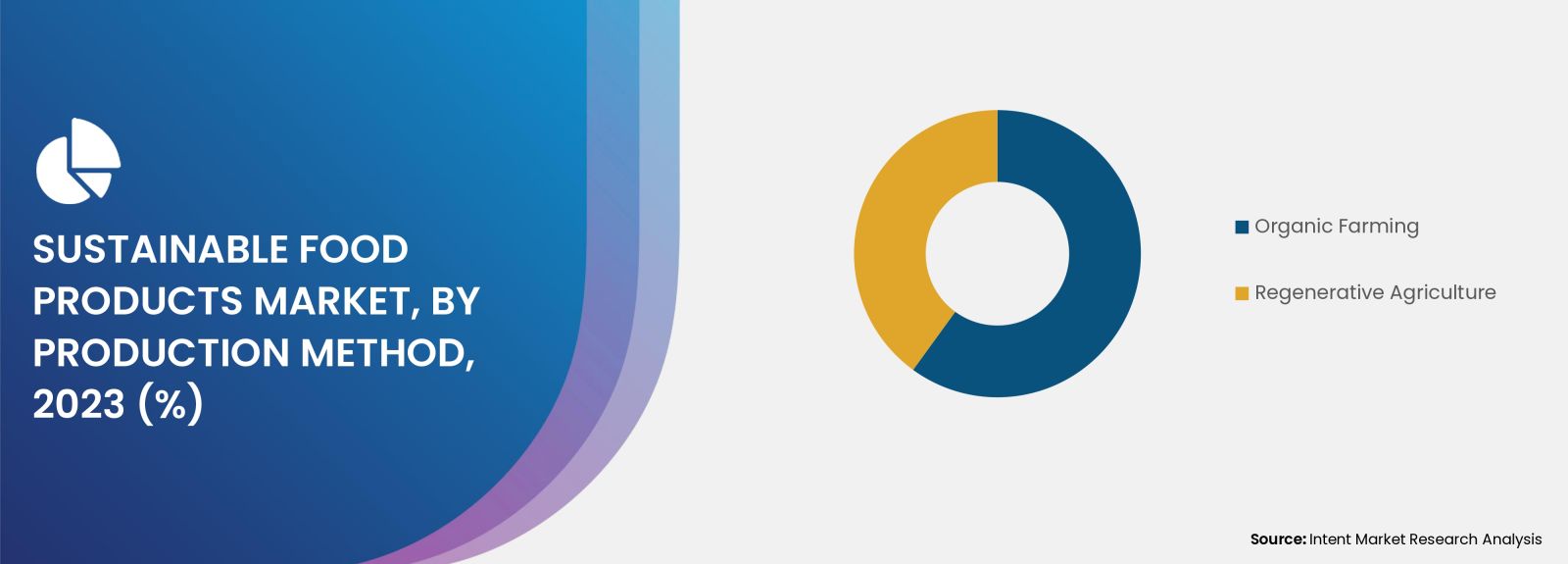sales@intentmarketresearch.com
+1 463-583-2713
Sustainable Food Products Market to reach USD 512.9 billion in 2030, at a CAGR of 5.5% | IMR
The Sustainable Food Products Market was estimated at USD 352.1 billion in 2023-e, and is projected to grow at a CAGR of 5.5% through 2030 to reach USD 512.9 billion. Consumers are demanding more transparency in the food supply chain. They want to know where their food comes from, how it is produced, and the impact of production on the environment. Sustainable food products often come with transparent labeling and traceability information.
Sustainable seafood practices consider the broader ecosystem, working to minimize the impact of fishing on non-target species and habitats, and aiming to maintain a balanced marine ecosystem. Certifications such as the Marine Stewardship Council (MSC) label and others provide consumers with visible indicators of sustainably sourced seafood. Increased awareness and demand for certified products drive the adoption of sustainable practices. The development of sustainable aquaculture methods, such as land-based aquaculture and closed-loop systems, provides alternatives to traditional open-sea fishing and contributes to meeting seafood demand without compromising the environment.
Regenerative practices focus on enhancing soil health by promoting the growth of beneficial microorganisms, increasing organic matter, and improving nutrient cycling. Healthy soil contributes to the production of nutrient-dense and flavorful crops. Regenerative agriculture methods help sequester carbon in the soil, acting as a natural solution to mitigate climate change. This involves practices such as cover cropping, no-till farming, and agroforestry, which enhance carbon storage in the soil.

In the Asia-Pacific region, sustainable food products and practices are gaining momentum due to increasing awareness of environmental issues, changing consumer preferences, and efforts by governments, businesses, and organizations to promote sustainability in the food industry. There's a growing interest in organic farming methods across various countries in the Asia-Pacific region.
Countries like Australia, New Zealand, Japan, and parts of Southeast Asia are witnessing an increase in organic farming practices. Certification programs are becoming more prevalent, ensuring that products meet organic standards. The Asia Pacific is the fastest-growing market for sustainable food products, driven by countries with the highest populations that demand eco-friendly options. The market is highly competitive, with key players aggressively acquiring smaller ones and innovating their product lines to meet changing consumer preferences.
Large corporations are setting sustainability goals, committing to reducing carbon footprints, ensuring responsible sourcing, and promoting transparent supply chains to gain a competitive edge and meet consumer expectations. The key players operating in the market are Amy's Kitchen, Aeon Co., Unilever, Organic Valley, Conagra Brands, Hain Celestial, General Mills, TESCO, Waitrose & Partners, Maple Leaf Foods, Beyond Meat, Impossible Foods, The Kraft Heinz Company, REWE Group, Danone, Bimbo Group, Ingredion, Kellogg, and Mars Incorporated.
Available Formats



